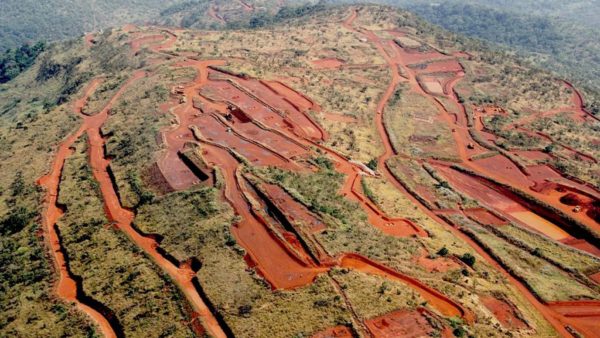A consortium of companies including mining giant Rio Tinto has broken ground on a 650km railway in the West African state of Guinea to ship iron ore.
The “Trans-Guinean Railway” will link the Simandou iron ore deposits to a port to be built at Matakong, an island near the Sierra Leone border.
The cost of the infrastructure is expected to be in the region of $17bn, an expense the consortium justifies by the size and purity of the Simandou reserves.
According to Rio Tinto, which is involved in mining the ore, the hills contain the world’s largest remaining untapped reserve of high-grade iron ore, estimated at over 2 billion tonnes.
The rail system will be dual-track, and will be built to higher standards than a typical line because it will have to carry 10,000-tonne trains. The line will have 12 stations, 213 bridges and four tunnels.
RioTinto is working in conjunction with the government of Guinea and Winning Consortium Simandou (WSD), a company it set up in conjunction with Winning International Group, a conglomerate based in Singapore with offices in China, Indonesia, and Guinea.
Rio Tinto plans to invest $6.2bn in the mine, rail and port project, in conjunction with a number of other companies, including five from China.
In November 2019, WSD was awarded a concession to develop two blocks of the Simandou deposit.
The work is being undertaken by La Compagnie du TransGuinéen (CTG), formed by WSD and Rio Tinto in March 2022.
Both main partners own a 42.5% equity share, with the government of Guinea taking the remaining 15%. This entity will manage the construction and operation of the railway and port.
Dominic Barton, chair of Rio Tinto, said the scheme would “redefine Guinea’s economic and social landscape for generations to come”.
In March last year, the US Securities and Exchange Commission (SEC) announced charges against Rio Tinto for violations of the Foreign Corrupt Practices Act (FCPA) arising out of a bribery scheme involving a consultant in Guinea.
The SEC’s investigation uncovered that the consultant, acting as Rio Tinto’s agent, offered and attempted to make an improper payment of at least $822,000 to a Guinean government official in connection with the consultant’s efforts to help Rio Tinto retain its mining rights in the Simandou region.
Rio Tinto agreed to pay a $15m civil penalty to settle the charges without admitting or denying the SEC’s findings.
Further reading:
The post Work starts on $17bn iron ore rail-and-port scheme in Guinea appeared first on Global Construction Review.


